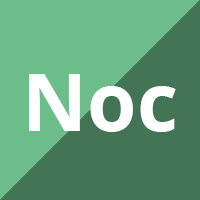Abstract
Background
Fatigue is a common and disabling symptom in people with a primary brain tumour (PBT). The effectiveness of interventions for treating clinically significant levels of fatigue in this population is unclear.
Objectives
To assess the effectiveness and safety of pharmacological and non-pharmacological interventions for adults with PBT and high levels of fatigue.
Search methods
In March 2016, we searched the Cochrane Register of Controlled Trials (CENTRAL), MEDLINE, PsycINFO and CINAHL and checked the reference lists of included studies. We also searched relevant conference proceedings, searched for ongoing trials via ClinicalTrials.gov and contacted major co-operative groups with trials in this area.
Selection criteria
We included randomised controlled trials (RCTs) that investigated any pharmacological or non-pharmacological intervention in adults with PBT and fatigue, where fatigue was the primary outcome measure. We restricted inclusion specifically to studies that enrolled only participants with clinically significant levels of fatigue.
Data collection and analysis
Three review authors (JD, SYK, DC) independently evaluated search results, extracted data from selected studies and carried out a bias risk assessment. We extracted data on fatigue, cognition, mood, quality of life and adverse events outcomes.
Main results
We identified nine studies. We excluded eight of these as they did not restrict participation to people with high fatigue. The single eligible trial investigated the use of modafinil compared to placebo. Although this study found a significant improvement over time in the primary outcome of fatigue, the improvement occurred after both modafinil and placebo with no significant difference in response between the two groups. The included trial did not reach its planned recruitment target and therefore may not, in practice, have been adequately powered to detect a difference. The trial was at a low risk of bias across most areas. There was an unclear risk of bias related to the use of mean imputation because the investigators did not analyse the impact of imputation on the results.
Authors’ conclusions
There was insufficient evidence to draw reliable and generalisable conclusions regarding potential effectiveness or harm of any pharmacological or non-pharmacological treatments for fatigue in people with PBT. More research is needed on how best to treat people with brain tumours with high fatigue.
Plain language summary
Interventions for the management of fatigue in adults with a primary brain tumour
Background
A primary brain tumour (PBT) is a cancer that began in the brain rather than spread from other parts of the body. Fatigue (tiredness) is common in people with a PBT. This may be due to the tumour, its treatment or to the use of other medicines such as antiepileptic drugs (which are used to treat epilepsy seizures). It may also occur with other symptoms such as sleep disturbance, thinking problems and emotional distress. Treatments to help manage fatigue may improve a person’s quality of life, their ability to tolerate cancer treatment (which themselves are associated with fatigue), and their ability to carry out social and day-to-day activities.
Study characteristics
In March 2016, we searched five medical databases. We found one clinical trial that was eligible for inclusion; the trial investigated the medicine modafinil in 37 adults with PBT and high levels of fatigue. People in the study received six weeks of modafinil followed by a one-week washout period and six further weeks of placebo, or vice versa. The washout period aims to allow time for any effects of the first treatment to wear off before the new one gets started.
Key findings
The one included trial found no evidence of a difference between modafinil and placebo in treating fatigue. It is possible that this could be due to the trial not reaching its planned number of participants. Several other studies investigated the management of fatigue too, but in these studies high fatigue was not essential for participation. We do not currently know whether any treatments are effective in the management of people with PBT and high fatigue.
Quality of the evidence
With only one included trial, the overall quality of evidence was low. More high-quality studies are needed that enrol adults with BPT and high fatigue.


